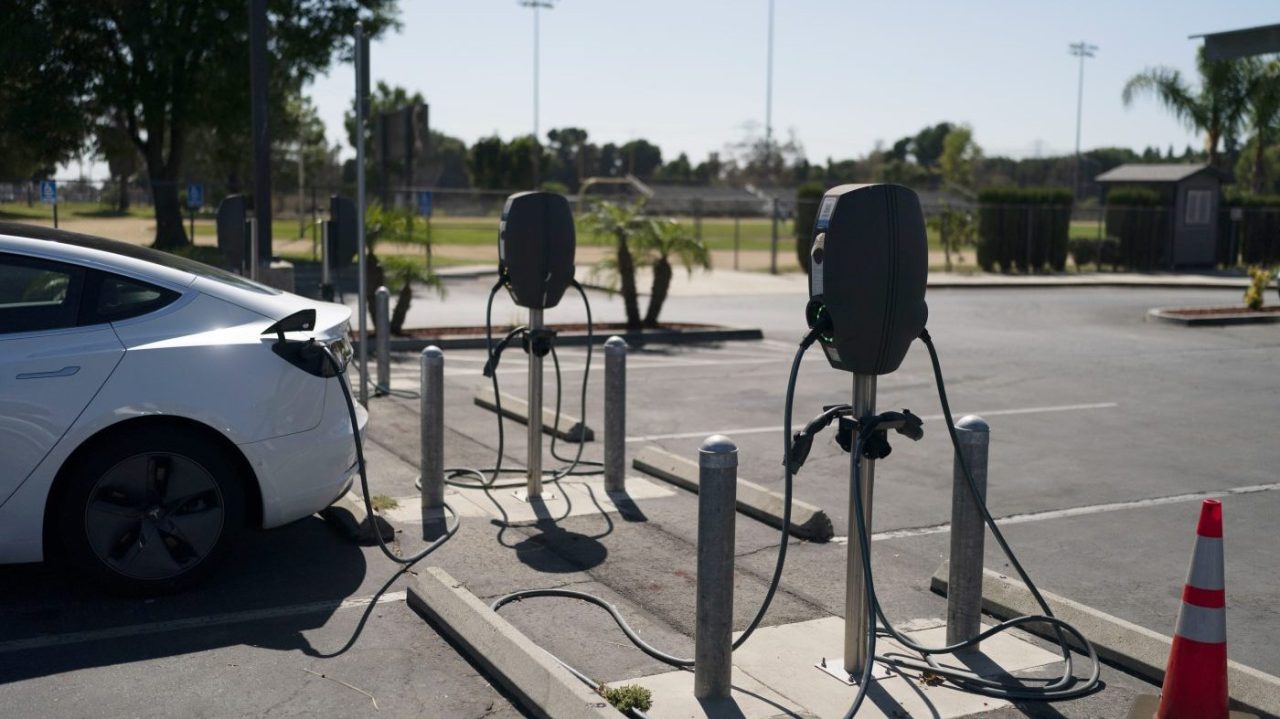Dealerships Renew Pushback Against Electric Vehicle Requirements

Table of Contents
Financial Concerns and Infrastructure Limitations
A major hurdle for dealerships adopting EVs is the substantial upfront investment required. Transitioning to an EV-centric model necessitates significant expenditure on infrastructure, including the installation of fast charging stations, the acquisition of specialized tools and equipment for EV repair, and comprehensive employee training on EV technology and maintenance. This financial burden is amplified by the lack of sufficient government support for these crucial investments. Many dealerships find themselves facing a financial squeeze, particularly given that profit margins on EV sales are often lower than those of gasoline-powered vehicles. The discrepancy stems from factors such as lower service revenue from EVs, which have fewer moving parts requiring regular maintenance, compared to internal combustion engine (ICE) vehicles.
- Cost of installing fast chargers: The expense of installing and maintaining Level 2 and DC fast chargers represents a considerable capital outlay for dealerships, often exceeding their existing budgets.
- Need for specialized EV repair technicians: Training existing mechanics and hiring specialized technicians to handle EV repairs adds to the financial strain.
- Lower service revenue from EVs compared to ICE vehicles: Fewer maintenance needs translate to less frequent and less lucrative service appointments.
- Potential for unsold EV inventory due to low consumer demand in some regions: Dealerships risk being saddled with unsold EVs in areas where consumer demand remains low.
Consumer Demand and Market Readiness
Dealerships also express concerns about the readiness of the market for widespread EV adoption. While EV sales are growing, consumer demand remains unevenly distributed geographically. In some regions, particularly rural areas with limited charging infrastructure, consumer interest lags significantly. Further hindering widespread acceptance are limitations in current EV technology, such as range anxiety – the fear of running out of battery power – and relatively long charging times compared to refueling gasoline vehicles. This lack of infrastructure directly impacts consumer adoption, creating a significant barrier to market penetration.
- Geographic disparities in EV adoption: EV uptake varies significantly depending on location, access to charging stations, and consumer awareness.
- Concerns about charging infrastructure accessibility: The uneven distribution of charging stations, particularly in rural areas, poses a major obstacle to widespread EV adoption.
- Limited range and long charging times of EVs: The current limitations in EV battery technology directly affect consumer confidence and acceptance.
- Consumer perception of EV cost and value: The higher upfront cost of EVs, compared to gasoline-powered vehicles, can deter potential buyers.
Government Regulations and Policy Impacts
Government regulations mandating minimum EV sales quotas exert considerable pressure on dealerships. These policies, while intending to accelerate the shift to EVs, are criticized for potentially creating unfair competition and market distortions. Dealerships contend that these mandates lack flexibility and fail to account for the diverse market conditions across different regions. The lack of a tailored approach to support dealerships in this transition is viewed as a critical flaw in current policies.
- Impact of quotas on dealership profitability: Meeting mandated EV sales quotas can negatively impact dealership profitability if consumer demand isn't high enough.
- Unequal playing field for dealerships in different regions: Dealerships in areas with lower EV adoption rates face a greater challenge in meeting these quotas.
- Criticism of government's lack of consideration for dealership realities: The government's approach is seen as failing to adequately address the unique financial and logistical burdens faced by dealerships.
- Calls for more flexible and market-driven solutions: The industry advocates for policies that are responsive to market realities and provide more flexibility for dealerships.
The Role of Manufacturer Support
Auto manufacturers play a critical role in easing the transition to EVs for dealerships. The level of support provided varies significantly between brands. Manufacturers can contribute significantly through financial incentives for investing in EV infrastructure, comprehensive training programs for service technicians, and marketing campaigns to increase consumer demand for EVs. However, there are inconsistencies in the support offered, leaving some dealerships feeling unsupported in their efforts.
- Manufacturer-provided training programs for EV service: Comprehensive training programs are vital in equipping dealerships with the expertise to service and repair EVs.
- Financial incentives for dealerships to invest in EV infrastructure: Substantial financial support is crucial to help dealerships offset the high cost of installing charging stations and other necessary infrastructure.
- Manufacturer-led marketing campaigns to increase EV demand: Manufacturers play a key role in driving consumer demand through targeted marketing initiatives.
- The level of manufacturer support varies significantly between brands: The inconsistency in manufacturer support underscores the need for a more standardized approach.
Conclusion: The Future of Dealerships and Electric Vehicle Adoption
The ongoing pushback against electric vehicle requirements highlights the complex interplay of financial, infrastructural, and market forces at play. Dealerships face genuine challenges in adapting to the rapid shift towards EVs. Addressing these concerns requires a collaborative effort involving policymakers, manufacturers, and dealerships themselves. Phased-in mandates, increased government support for infrastructure development, and enhanced collaboration between manufacturers and dealerships are crucial steps toward a smoother transition. Finding sustainable solutions that support both the transition to electric vehicles and the continued viability of our dealerships is paramount. Let's continue the conversation and find balanced solutions that address the concerns regarding electric vehicle requirements and the role of dealerships in this critical period of automotive industry transformation.

Featured Posts
-
 Suits La Episode 8 Did Harvey Specter Save The Spinoff
May 14, 2025
Suits La Episode 8 Did Harvey Specter Save The Spinoff
May 14, 2025 -
 Cassies Wedding In Euphoria Season 3 Set Photos Reveal New Details
May 14, 2025
Cassies Wedding In Euphoria Season 3 Set Photos Reveal New Details
May 14, 2025 -
 Eurovision Semi Final Estonias Absurd Italian Parody
May 14, 2025
Eurovision Semi Final Estonias Absurd Italian Parody
May 14, 2025 -
 The Voice Season 27 Episode 3 Recap Adam Levines Return To Form
May 14, 2025
The Voice Season 27 Episode 3 Recap Adam Levines Return To Form
May 14, 2025 -
 Planes En Sevilla Para Hoy Miercoles 7 De Mayo De 2025
May 14, 2025
Planes En Sevilla Para Hoy Miercoles 7 De Mayo De 2025
May 14, 2025
